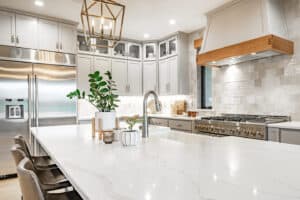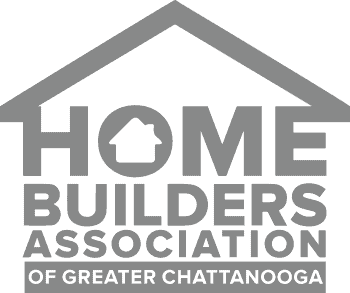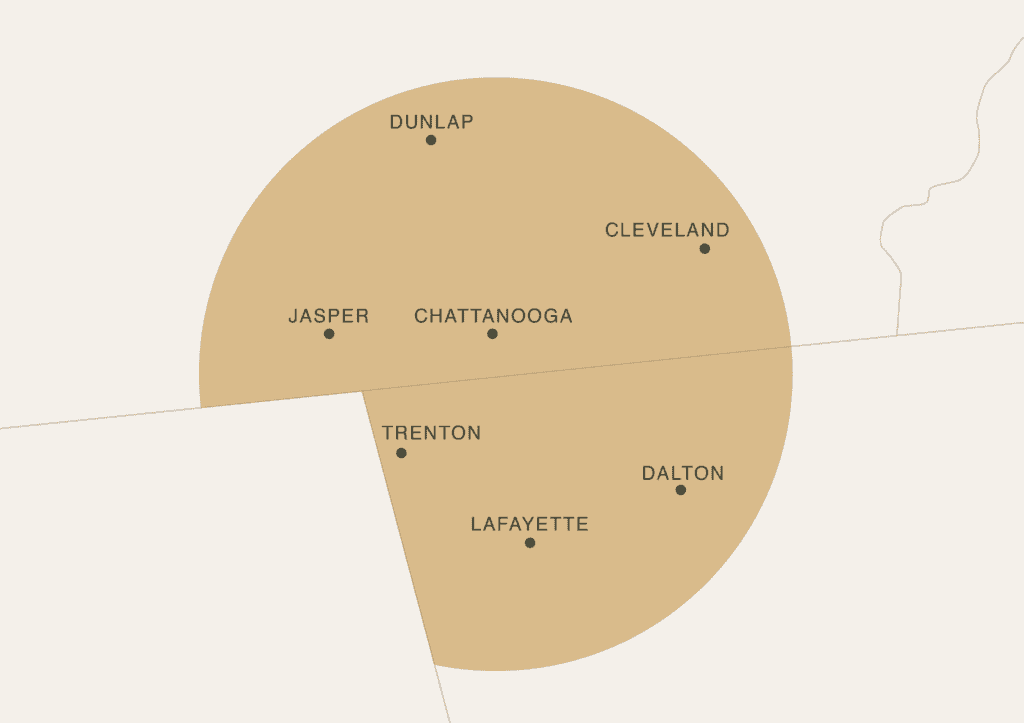If you’re considering designing and building a custom home, you are likely interested in creating a space that not only reflects your own personality and style but also meets your unique needs. You understand the importance of house design and working with a builder you’re aligned with – one who will have your best interest at heart. Entering into this journey will require your time, energy, and resources, so it’s important to be intentional and do it right from the beginning. This blog will walk you through custom home design tips and tricks to set you up for success.
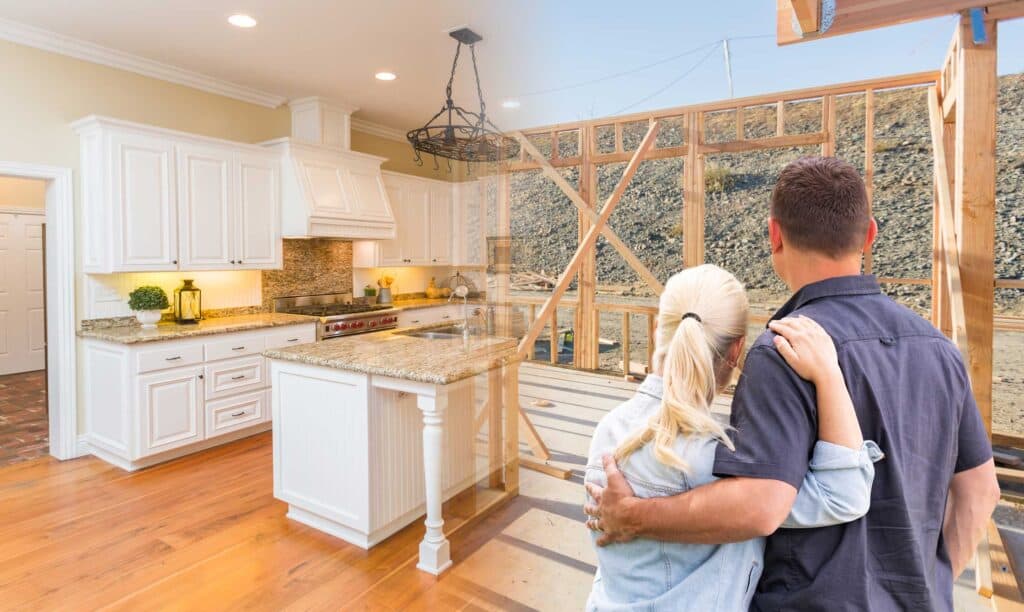
UNDERSTAND YOUR NEEDS AND LIFESTYLE
The first thing to keep in mind when designing a custom home is your unique needs. Consider who will live in your home, how long you plan to live there, if you or your family have special needs, and if you plan to entertain. This will help you incorporate key aspects into your custom home design, such as whether or not your house should be all on one level or have multiple floors. You may need an extra area to host guests or to raise a family, or you may not. Be really precise about your lifestyle. A common mistake in custom home design is building bigger than your needs. This creates wasted space and resources.
FIND THE RIGHT CUSTOM HOME BUILDER
When you enter into a relationship with a builder and an architect, it’s like getting married. It may sound extreme, but this collaboration is an aspect of custom home building that is often overlooked. You are signing contracts with these individuals for multiple years, so be sure they are people you get along with and enjoy working with.
It’s your architect’s responsibility to combine their expertise with your needs, ideas, and style, which they will then effectively communicate to your builder. Once you find someone whose work aligns with your vision, talk to clients and builders they’ve worked with in the past. Walk through homes they’ve designed, if possible, and show their portfolio to your builder to make sure your choice works for all parties.
The same can be said for your builder. Talk to their past clients, walk through homes they’ve built, and ask architects they’ve worked with if they’ve accurately executed their designs. Their reputation and track record are important. That said, technical design and building techniques are always changing, and at the end of the day, if you choose to work with a builder and an architect you feel comfortable with, your custom home design project will be successful.
CONSIDER THE IMPORTANCE OF LOCATION
The environment of your custom home is important. Does the neighborhood where you’re building your home need to be close to schools, markets, or fancy restaurants? Do you value quiet and solitude, thus avoiding busy roads or freeways, or do you want quick access to transportation? Is your community important to you? Do you want to live near young families, retired individuals, folks with dogs? Do you want to live in a gated community that has amenities but will also likely require you to adhere to design or sustainability guidelines?
There are also more technical considerations of the environment that will affect the location of your home: Will you be on city sewage or a septic system? Where will your driveway be in relation to your garage? Where will people park? Would you like a lot of property that will require upkeep and landscaping? Answering these questions will help you consider the importance of the location of your custom home, and they are all great things to discuss with your custom home builder.
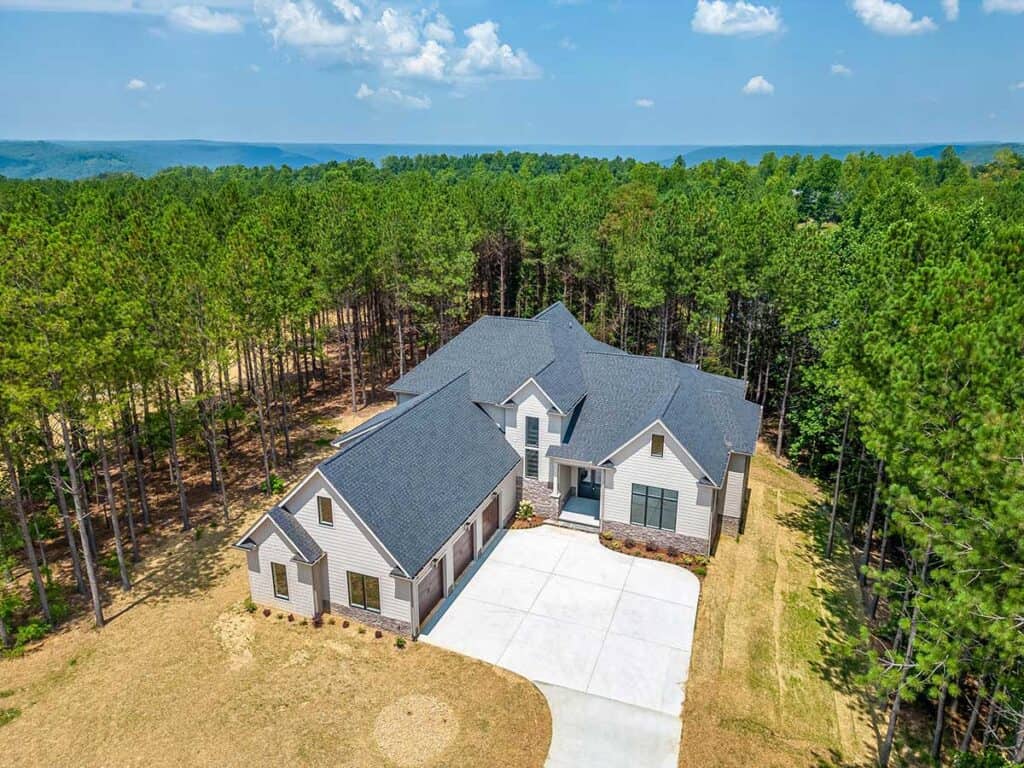
DESIGN YOUR HOME FOR EFFICIENCY AND FUNCTIONALITY
When designing your custom home, it’s important to consider the flow and connectivity between rooms. Your architect will be pivotal in helping you do this, but it’s important to give him or her key information to work with. For example, if you love to cook, you’ll want to pay special attention to the layout of your kitchen. If you have a lot of clothes, you’ll likely want to design a larger closet with thoughtful storage in your main bedroom. Seemingly small design choices will make a big impact on your day-to-day life.
It’s also important to consider lighting in the early stages of custom home design. If natural light is important to you, you’ll want to pay attention to the placement of your custom home on your property in addition to where your rooms are within the house. For example, if you enjoy morning light, you’ll want to make sure your bedroom windows face east.
Lastly, you should make sure your design decisions are future-proofed. Will the decisions you make fit your needs for the entire time you plan to occupy the house? Will they make sense for future potential buyers? The investment you are making in this home should withstand the test of time.
BALANCE AESTHETICS AND PERSONAL STYLE IN HOME DESIGN
When making interior and exterior design choices, it’s important to incorporate your personal style while also ensuring longevity. If you trust and rely on your architect and builder, they will steer you in the right direction. That said, you should also do your homework: Go out and find what you like. Consider how much you want to spend. Take a look at the homes in your new neighborhood and environment. Will your design blend in or will it stick out like a sore thumb? Do your best to design a custom home that is timeless but also true to your vision. If you’re feeling stuck, find a basic custom home design you like, and take it to your architect to modify it based on your personal style and needs.
QUALITY ASSURANCE AND PROJECT MANAGEMENT
Custom home design will require your involvement from the very beginning to the very end. It’s important to monitor the entire construction process. Many people are building custom homes, and builders are busy. You’ll want to pick a builder who will stay on your project after signing the contract and continue to supervise subcontractors. If you are building a home far away from where you currently live, consider hiring a consulting firm to monitor the project for you.
What exactly should you be looking for during this process? Make sure inspections and quality checks are happening. The ideal builder won’t rely on subcontractors to make this happen but will be present to oversee quality control every step of the way.
It’s also important to have a contingency plan. Set aside money for unforeseen circumstances. There is no custom home project that is 100% perfect, but you can minimize what can go wrong by being in constant communication with your builder. If something does go wrong, you’ll have that extra money you set aside. If not, you can apply that money to something else down the road.
WRAP UP AND ENJOY YOUR DREAM HOME
Congratulations! Your dream home is done. The final walkthrough is such an exciting time – you finally get to see all of your hard work paid off. It’s important that you enjoy it, but don’t forget to keep an eye out for the details. Try to imagine yourself already living there so you can pick up on the little things. For example, is that door handle loose? Is that light fixture not quite right? If you’ve done the work of finding and hiring a custom home builder you trust, they’ll make these things right. Then, all that’s left to do is experience the pure joy of moving into your custom home!
Custom home design takes a significant amount of time. It’s a relationship you’re entering into with a builder and an architect, and it’s something you’re doing for your future self and family. It’s important that you do your homework and work with someone you trust. Ultimately, all of the hard work will pay off, and you’ll get to experience the lifelong benefits of a thoughtfully designed custom home that perfectly fits your needs. So what are you waiting for? Use these custom home design tips to start planning your dream home today!


